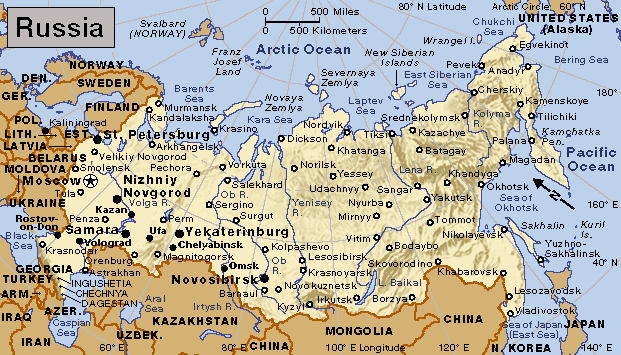Kaliningrad << kuh LEE nihn `grad` >> (pop. 490,449) is the westernmost port city of Russia. A natural water route connects the city with the Gulf of Gdansk on the Baltic Sea. Kaliningrad serves as an important seaport because its deep harbor remains free of ice the year around. The city’s industries include shipbuilding, ship repair, machine building, and fishing. Kaliningrad is the home of the Russian Navy’s Baltic Fleet.

The city is the capital of Kaliningrad Oblast (region), Russia’s westernmost territory. The oblast is separated from the rest of Russia by Lithuania and Belarus. Kaliningrad Oblast covers about 5,830 square miles (15,100 square kilometers). It has one of the world’s largest deposits of amber. The oblast also has rich farmland and some oil reserves.
German knights founded the city as a fortress in 1255. It was originally called Königsberg. The city became the cultural and political center of the German state of East Prussia in the 1600’s. The philosopher Immanuel Kant lived in Königsberg and taught at its university.
Much of the city was destroyed in World War II (1939-1945). The city and surrounding territory became part of the Russian republic of the Soviet Union in 1945. The Soviets renamed the city Kaliningrad in 1946 and rebuilt it. When the Soviet Union dissolved in 1991, Kaliningrad remained part of Russia.
